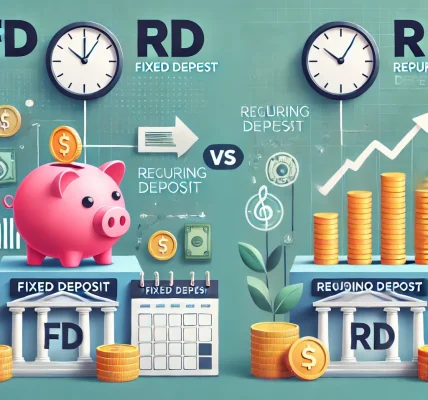Introduction
Life is full of exciting milestones—marriage, buying a home, having children, and more. While these events bring joy, they also come with significant financial responsibilities. Without proper planning, these expenses can create financial stress and impact your long-term wealth.
In this guide, we will discuss practical steps to help you financially prepare for major life events while maintaining financial stability and security.
1. Setting Clear Financial Goals
Planning for major expenses begins with setting clear financial goals. Break down your financial needs into short-term, mid-term, and long-term categories:
- Short-Term Goals: Saving for an upcoming wedding or vacation.
- Mid-Term Goals: Buying a home or upgrading to a larger space.
- Long-Term Goals: Funding your child’s education or securing a comfortable retirement.
How You Can Apply This:
- Use financial planning apps like Mint or YNAB to track goals.
- Set SMART (Specific, Measurable, Achievable, Relevant, Time-bound) financial objectives.
- Discuss financial expectations with your spouse or family members.
2. Budgeting for Marriage Expenses
A wedding is a significant life event, but it can also be costly. Proper financial planning ensures you don’t start your married life in debt.
Key Expenses to Consider:
- Venue and catering
- Wedding attire and jewelry
- Photography and videography
- Honeymoon costs
How You Can Apply This:
- Create a wedding budget and prioritize essential expenses.
- Open a separate savings account for wedding expenses.
- Consider off-season or smaller weddings to cut costs.
- Avoid overspending on credit cards—pay in cash when possible.
3. Saving for a Home Purchase
Buying a home is one of the largest financial commitments you’ll make. Proper preparation ensures you make a sound investment.
Key Expenses to Consider:
- Down payment (typically 10-20% of the home price)
- Closing costs (2-5% of the purchase price)
- Property taxes and insurance
- Home maintenance and renovations
How You Can Apply This:
- Start saving for a down payment early.
- Check your credit score to secure better mortgage rates.
- Compare different mortgage options before committing.
- Stick to a budget that aligns with your income and future goals.
4. Preparing for Children & Education Costs
Raising children requires long-term financial planning. From medical expenses to education, costs can add up quickly.
Key Expenses to Consider:
- Prenatal and delivery costs
- Childcare and healthcare
- School fees and extracurricular activities
- College tuition
How You Can Apply This:
- Set up a 529 savings plan or education fund early.
- Research tax-advantaged savings accounts for child-related expenses.
- Consider life and health insurance to protect your family’s financial future.
5. Building an Emergency Fund
An emergency fund acts as a financial cushion to cover unexpected expenses such as medical emergencies, job loss, or urgent home repairs.
How You Can Apply This:
- Save at least 3-6 months’ worth of living expenses.
- Keep emergency savings in a high-yield savings account.
- Avoid using your emergency fund for non-essential purchases.
6. Investing for Future Financial Security
Investing helps grow your wealth and ensures you’re financially secure for future life events.
Investment Options:
- Stock Market: Consider index funds or ETFs for long-term growth.
- Retirement Accounts: Contribute to a 401(k) or IRA for tax advantages.
- Real Estate: Rental properties can provide passive income.
How You Can Apply This:
- Diversify investments to reduce risk.
- Consult with a financial advisor for personalized investment strategies.
- Reevaluate your portfolio periodically to align with changing financial needs.
7. Reducing Debt & Managing Credit Wisely
Debt management is crucial to ensuring financial stability during major life events.
How You Can Apply This:
- Pay off high-interest debts first (e.g., credit cards).
- Use loans strategically (e.g., mortgages and student loans with low interest rates).
- Monitor your credit score regularly to qualify for better financial opportunities.
8. Getting Insurance Coverage
Insurance protects you from financial risks and ensures your family’s well-being.
Recommended Insurance Policies:
- Health insurance
- Life insurance
- Homeowners/renters insurance
- Disability insurance
How You Can Apply This:
- Compare insurance providers for the best rates and coverage.
- Ensure you have adequate life insurance if you have dependents.
- Regularly review policies to adjust coverage as your life changes.
9. Estate Planning for Future Generations
Estate planning helps secure your assets and ensure your family is financially protected after your passing.
How You Can Apply This:
- Create a legally binding will.
- Set up a trust to manage assets efficiently.
- Assign beneficiaries for retirement accounts and insurance policies.
Conclusion
Planning for major life expenses requires discipline, foresight, and strategic financial management. By setting clear financial goals, budgeting effectively, and making informed investment choices, you can ensure financial security for yourself and your family.




